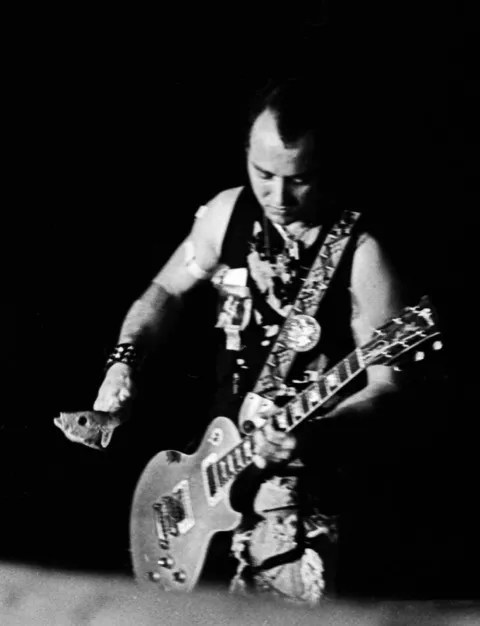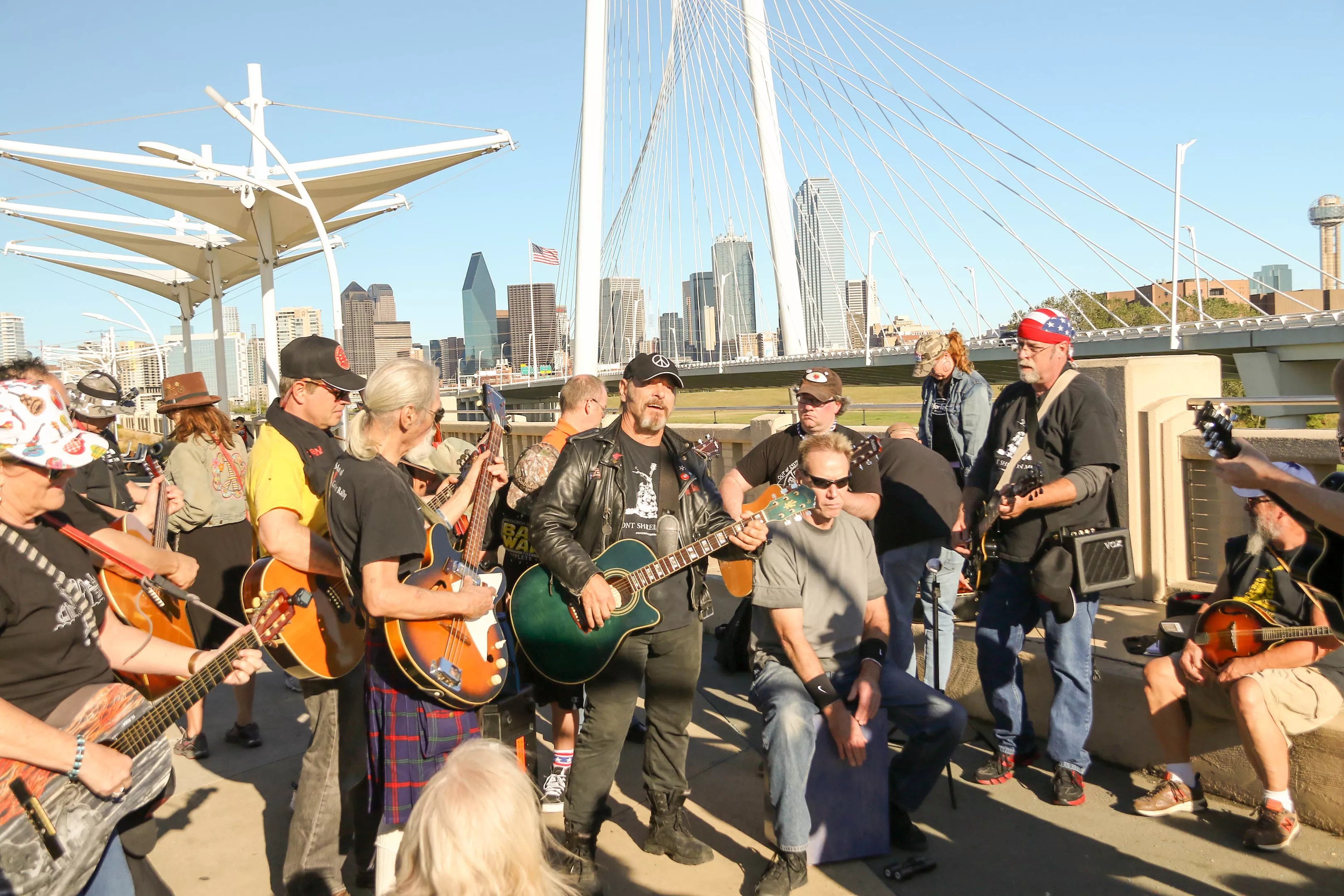
Curtis Smith

Audio By Carbonatix
Musician Barry Kooda is pulling an Up, minus the part with the helium balloons lifting his house and carrying him off to Paradise Falls. We’re also not sure whether his dog has an electronic collar that translates barks into English.
Kooda, the musician who played guitar in the pioneering Dallas punk band The Nervebreakers and dipped his toes into multiple other genres over the past 40 years, says he’s packing up his things and planning to move to Costa Rica by the end of the month.
“It’s not really real for me yet,” Kooda says. “It’s like I’m getting ready. It’s like I’m gonna die and you have an advance notice. All the things I consider memorabilia, nobody would want that. I don’t have any family who want it, so I put it in storage. Everything else is basically sold off.”
Kooda, whose real last name is Huebner, says he and wife Laura talked about picking up and moving down south after visiting the Central American country on several trips. Laura died in 2019 at age 61 of cervical cancer. Barry shared details of their harrowing journey on Facebook, where fans and friends flocked to help them through two years of aggressive treatments and grueling pain.
“Ever since Laura died, I don’t care about anything creative at all,” Kooda says. “I haven’t taken one picture. I had one Nervebreaker gig in December, but I’m bringing my guitar and camera. So who knows?”
Kooda and the Nervebreakers started performing around Dallas in the 1970s, just as the punk wave started creeping toward its high-water mark.
“At the time the Nervebreakers were happening, the punk community in Dallas was maybe 500 people,” says Jeff Liles, the artistic director of The Kessler. “Punk was so brand-new as a genre. It was still new to the public. There were one or two places in town where they could play. It was a small deal. It hadn’t emerged yet. It was still a small, tiny niche, and the Nervebreakers were the pre-eminent punk band in town.”
The Nervebreakers achieved legendary status through the band’s pulse-pounding, guitar-shredding music, which weaved in sounds from playful to poignant to head-pounding by never taking itself or its shows too seriously. The group arrived in the national spotlight by opening for bands such as the Sex Pistols in 1978 at the Longhorn Ballroom in a show that’s become part of punk music history. The Nervebreakers got through their set, but the mix of honky-tonkin’ good ol’ boys and steel-studded punks made for a total melee. Bassist Sid Vicious walked away with a bloody nose and broke beer bottles over the stage equipment.
The group’s show with The Ramones, who played for the first time in Texas at the Electric Ballroom, had a similar vibe thanks to the mix of urban cowboys and a 98-cent special on longnecks. Liles remembers a photo of Kooda biting into a raw fish that made it into the pages of Rolling Stone magazine.
“The first two rows were our fans,” Kooda says, “and it got progressively more bad the further away from the stage.”
The Nervebreakers played together through 1980. Kooda then played with a string of other bands and even wrote and recorded songs in new genres such as country with The Cartwrights in the 1990s.
“He can play any style of music,” Liles says. “He also did [Buck Satan and The 666 Shooters], which was a project of Al Jourgensen with Mike Scaccia from Rigor Mortis.”
Kooda organized the first annual Open Guitar Rally in 2014 on the Continental Street Bridge, a parody of the Open Carry rallies across the city and state where die-hard Second Amendment supporters would tote firearms in public and into places like Starbucks. The event earned Kooda national attention again and it attracted a massive turnout for years.

Barry “Kooda” leads a jam session on the Continental Avenue pedestrian bridge during the fourth annual Open Carry Guitar Rally.
Willie R. Cole
The increasingly overzealous political shift and the rise in the cost of living across the state prompted Kooda to finally make the move. He says he can live comfortably in Costa Rica without exhausting his savings, and the country’s residents are friendly.
Kooda recalled his last trip to the region. He had to get to the airport during the country’s Independence Day, when every town on his route had blocked its roads for parades. He says he got help from someone in just about every one of those cities and even at the airport when his plane was just about to leave and a staff member offered to return his rental car for him.
“I got home and didn’t have a $60,000 bill on my Discover card,” Kooda says. “You just can’t do that shit in the U.S. People don’t help you that way. It’s a really great country.”
The musician will make trips back to Dallas since he still has some things in storage he wants to transport and plenty of fans and friends who will always be eager to see him.
“I’ve been talking about it for a long time and now I realize: oh, I’m really doing it this time,” he says. “I’ll miss people and they’ll miss me, but I figure I’m gonna be busy figuring out the new life.”
Liles says it’s not just Kooda’s music that fans and friends will miss.
“He’s a really vital part of the Oak Cliff community,” Liles says. “Everybody knows him and he’s also worked as a rigger in basically every venue in town. He’s just a really, really well-known personality and people like him. They like working with him and having him around. I’m definitely gonna miss him.”